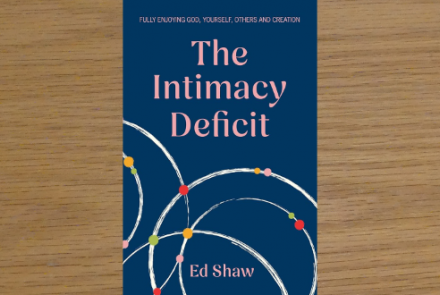Finding Peace with my Gender
I recall feeling envious of girls during my childhood - prior to adolescence - and seeking to mimic their play and appearance; I would have preferred to be a girl rather than a boy.
I began cross-dressing in early teenage years. I frequently fantasied about being female. By the time that I married I was aware that I could wear my wife's clothing. Unlike a lot of wives at the time, she was initially supportive (but later changed) and encouraged my involvement with like-minded groups and individuals. At that time, such groups operated covertly using obscure terminology to identify themselves secretly to other such individuals.
It was then common to use the term 'transvestite' describing males, usually heterosexual, who enjoyed cross dressing and identifying as female, even if only occasionally. Transvestite groups then distanced themselves from gay people. 'Transsexuality', the term used to describe those who sought or underwent sex re-assignment surgery, was also considered something distant. (Transsexuals usually cross-dressed and pursued transvestite behaviour prior to seeking hormones and surgery, although this was often later denied.)
In my case, the more involvement I had with such like-minded individuals and groups the more I sought it. The activity became quite addictive.
Inevitably, after a number of years my marriage failed. I married again, but my second wife was not supportive of my cross-dressing, although she stated that 'she could live with it' after I assured her that I was not gay. I believe she felt that she could change me. That marriage quickly failed too.
I was subsequently admitted to hospital suffering depression. When the medical staff learnt that I cross dressed and experienced gender ambiguity (my term) it was recommended that I undergo sex re-assignment surgery and live the rest of my life as a female, believing that that was the only way that I would resolve the internal ambiguity. I was under pressure by the doctors to undergo hormone treatment and surgery. Although for years I had fantasised about the prospect of undergoing such a transition, I declined. I had observed a number of individuals transition from male to female. Although I was envious of them, I knew deep down that was not the answer for me. The cost was too great. Having made such a decision, the doctors lost interest in me and I was discharged from hospital.
Following my discharge from hospital I was soon to become a Christian. All my adult life until that time, I avoided Christians and anything to do with church. Nevertheless, through a bizarre set of circumstances, I found myself at an evangelistic rally. I had, like most of my peers, as a young boy attended Sunday School and church services. But that rally was unlike anything that I had previously experienced. Towards the end of the meeting and following the call to salvation, I felt myself thrust to the front to receive Christ as my Saviour. I had a sense that God, who I said I didn't believe in, spoke to me saying that He would use me to reach out to others like myself.
I became involved with church life and, a few years later, with an international mission agency. I read the Bible, together with other Christian books, frequently and thoroughly. Gradually, with a determined refocusing on God and what it meant to be a Christian, the desire to identify as a female diminished. That refocusing was not always easy nor on an upward curve, rather one or two steps forward and often one backwards. I found that the behaviour that had developed over a number of decades was not easily resolved. Churches and individuals were not always very supportive. Some church leaders, on learning of my past, discouraged any ongoing church involvement. Therefore, I learned to be very cautious about telling others of my past.
I began to reach out to people who had experienced similar gender ambiguity to mine. I became aware of how frequently some measure of depression and stress was associated with the behaviour, perhaps as a result of deeply uncomfortable and unacknowledged feelings. There seemed to be a marked degree of self-dislike manifesting as a form of (birth) gender hatred or loathing. Thinking and acting out would provide a measure of relief by retreating into another - albeit false - existence. As part of my restoration, I made it my business to understand the behaviour and its cause. I am convinced that such understanding that is supported by quality science and the Scriptures can enhance the restoration process.
In my case, I now no longer experience the gender ambiguity that so dominated my thinking and life. My experience was that, with a focus on scripture and a supportive Christian community, my deceptive self-belief could be overcome.
Keith's story was originally published in the Autumn 2018 of "Ascend", the TFT magazine.






